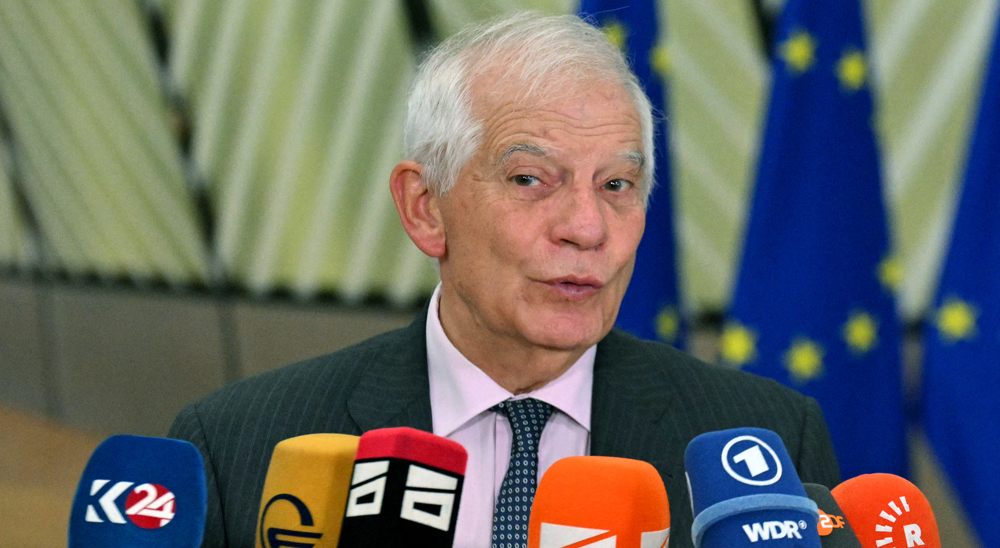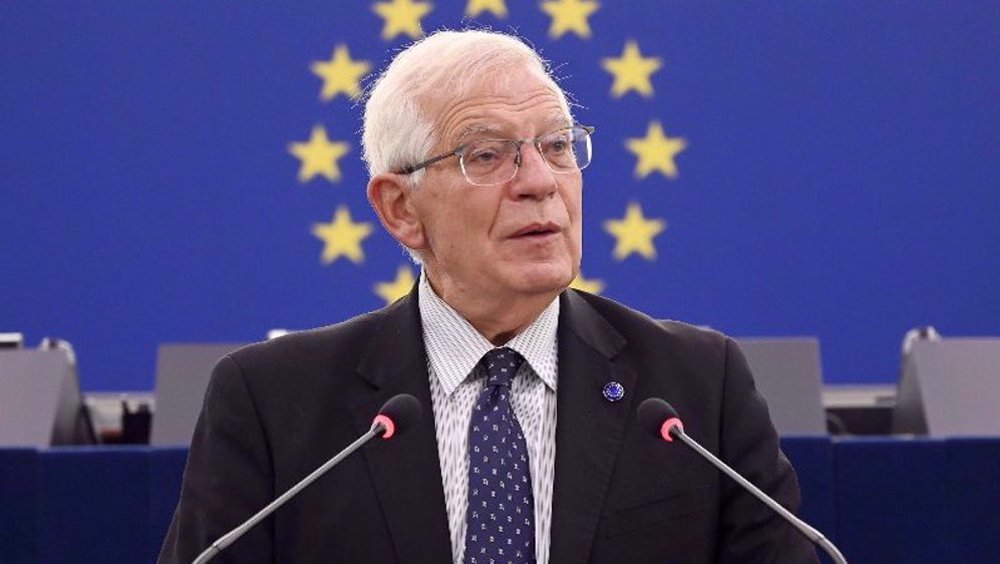Europe facing COVID-19 ‘catastrophe’ as 'vaccine war explodes'
The European Union is said to be facing a “catastrophe” over the delay in the supply of coronavirus vaccines across the continent, which is grappling with the epidemiological crisis that has so far claimed hundreds of thousands of lives.
Diplomats from the 27-member bloc expressed desperation about curbing the pandemic in a meeting in the Europa building in Brussels — home of the European Union’s political leadership — last week and said the vaccine squeeze was not just a public health nightmare but also a political crisis.
"This is a catastrophe," French ambassador Philippe Leglise-Costa said in the meeting of EU ambassadors.
The comment was made after the EU failed to live up to a promise to vaccinate 70% of adults against COVID-19 by the end of summer due to the delays announced by the companies producing coronavirus vaccines, such as AstraZeneca PLC and Pfizer Inc.
The shortage in the procurement of vaccines risked leaving millions of Europeans unprotected in the winter at a time that new, more transmissible variants were circulating and hospitals were being overwhelmed.
Reports said vaccination centers from Madrid to Paris had closed for lack of supply.
The European Commission lodged several lawsuits against the drugmakers in an attempt to win ground by legal means but failed and faced sharp attacks from EU governments as the pandemic has killed over 700,000 people in Europe alone.
Leaked notes, cited by Reuters, on internal EU meetings over the past month have revealed that the EU's top executives knew of the delays in the procurement of the coronavirus vaccines, exposing a climate of incompetence and chaos at the heart of Brussels.
"EU negotiators were aware AstraZeneca was scaling back its planned supply because of production problems," Reuters said, citing the leaked notes. "The company had told the EU’s steering group on December 4 that it would reduce its targets for the first quarter to two-thirds of the 120 million maximum."
The notes also showed that the bloc initially kept no track of the companies' vaccine doses leaving the union, only realizing after its own supplies were delayed and it could not trace the millions of doses already exported.
As the impact of the vaccine shortfall became clear, the bloc embarked on a campaign to shame drugmakers hit by production delays into releasing more supply, but the tactic fell through.
Since then, Commission President Ursula von der Leyen has attempted to regain the trust of EU leaders by admitting to her mistakes, saying Brussels "underestimated" the challenges of the coronavirus vaccine rollout across the bloc.
She has also stated that Brussels expects to receive about 100 million vaccine doses in the first three months of this year, with deliveries increasing month by month.
The Commission also turned up the heat on the United Kingdom - which AstraZeneca said was preventing British-made vaccines from reaching Europe - only to swiftly step back after realizing it risked disrupting a border agreement in the Brexit accord.
The damage to the EU’s image has splashed on the front pages of Britain’s euroskeptic popular press, with headlines declaring "EU vaccines war explodes” and "EU chiefs behaving like the mafia.”
According to a report published by AFP on Friday, the pandemic has killed at least 2,285,334 worldwide and more than 104,848,470 cases of infection have been officially diagnosed.
Of these, at least 63,863,800 are now considered recovered.
VIDEO | Hezbollah rains attack drones down on elite Israeli brigade
Leader: All captains of criminal, Zionist, terrorist gang must be prosecuted
Iran further raises its oil prices for Chinese buyers: Report
Iran to launch major pressure-boosting projects in South Pars
VIDEO | Escalation amid ceasefire talks
EU's Borrell says ICC arrest warrants for Israeli leaders binding
VIDEO | Press TV's News Headlines
VIDEO | Massacre in Pakistan’s Parachinar sparks outrage












 This makes it easy to access the Press TV website
This makes it easy to access the Press TV website